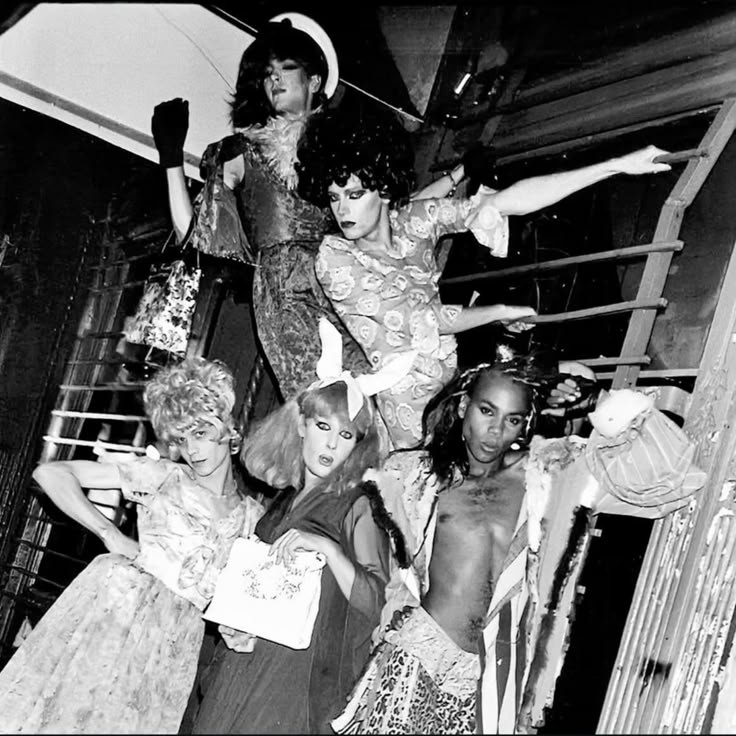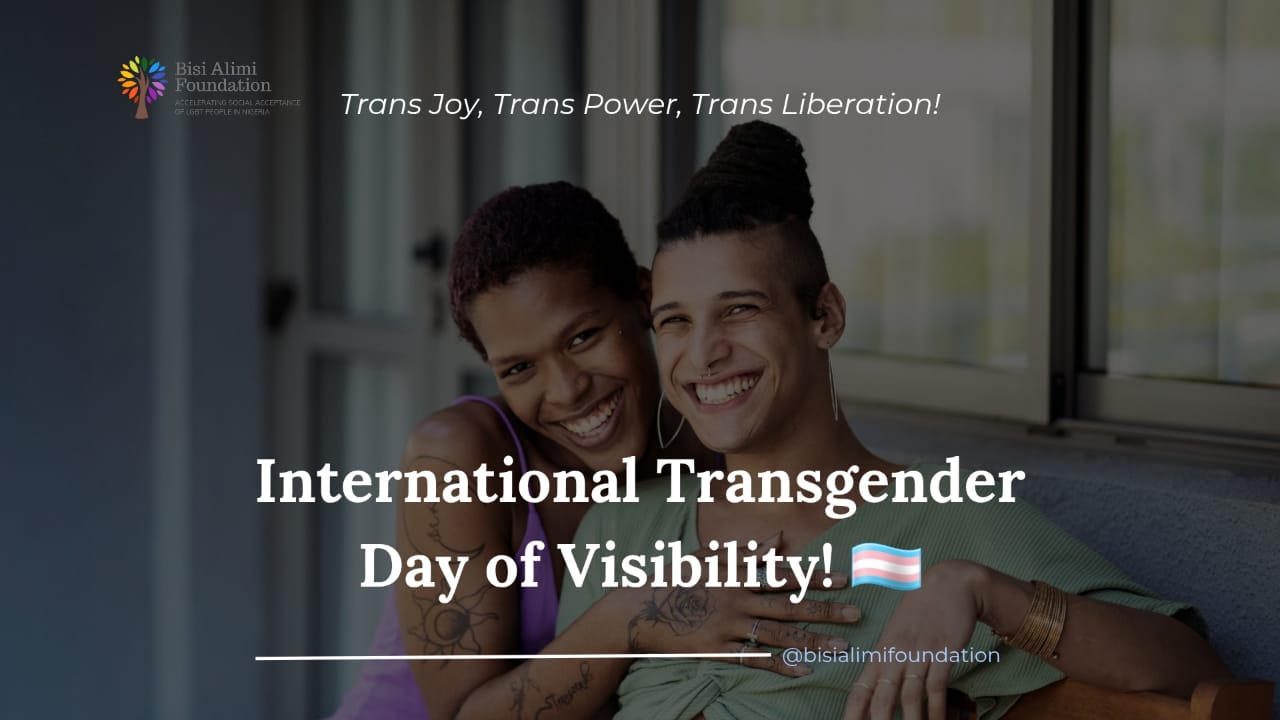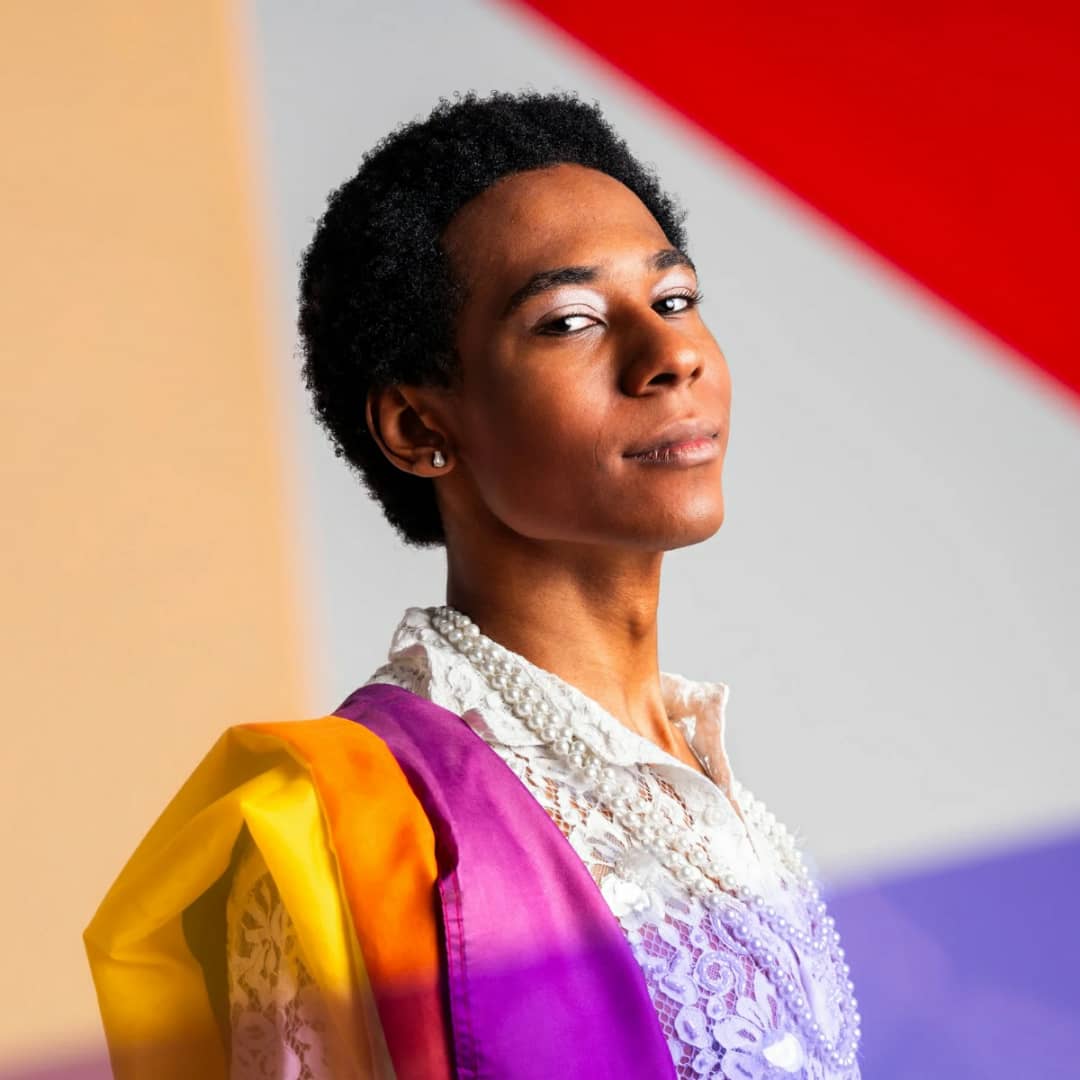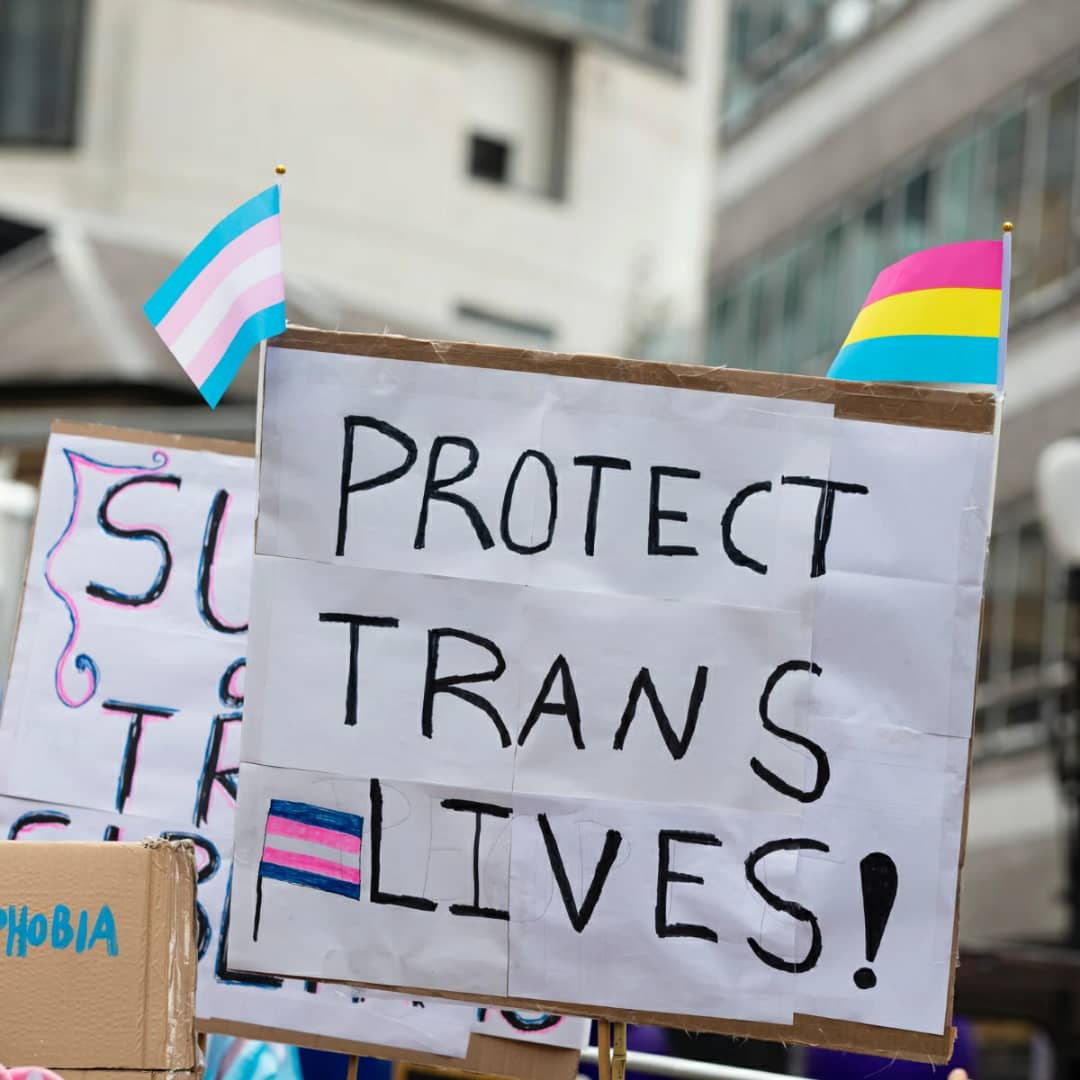“Queer joy is not just happiness. It’s our rebellion, our celebration, and our resistance in the face of erasure.”
Every March 31, the world marks International Transgender Day of Visibility (TDOV), a day to celebrate trans people and raise awareness of their struggles. But more than that, TDOV is a bold declaration, a day to remind everyone that trans people have always existed and deserve happiness despite the rising global tide of hate.

Young Rupaul Drag Queens
A Legacy of Joy and Resistance
Happiness is revolutionary when the world wants to watch you suffer. In the 1980s and 1990s, during the devastating AIDS crisis, queer communities, especially Black and Latinx trans and queer individuals found sanctuary in ballroom culture. Today, queer Nigerians are doing the same, carving out spaces of joy despite systemic oppression.
The ballroom scene, which dates back to the late 19th century, became a space for resistance through joy, especially during the HIV/AIDS crisis. Through singing, dancing, and extravagant fashion, queer people celebrated their identities unapologetically. Ballroom culture also served as a haven, a chosen family for those marginalized by society, and abandoned by families. Providing love, support, and a way to cope with the profound grief of losing countless friends and loved ones, the vibrance and energy of ballroom culture reminds us that even in the darkest times, joy and self-expression can be transformative acts of survival and resistance. In these spaces, every dance, every vogued step, and every category walked was a bold declaration: We are still here. We will not be erased.
Why Trans Joy Matters
In a recent video, trans comedian Alok Menon talks about the importance of queer joy as a form of rebellion and resistance, especially when the world is trying to silence us. Here’s why joy matters in the fight for trans rights:
- Joy fuels resilience: When you embrace happiness despite your situation, you take power away from those who want to see you broken and sad.
- Visibility inspires others: Seeing trans people live full, joyful lives gives hope to those struggling, in the closet, or just needing representation.
- Happiness challenges hate: The louder the joy, the harder it is for hate to drown it out.
- It Strengthens Community: Celebrating and fighting discrimination together reminds trans people that they are not alone, that they have a community behind them.
 The Price of Visibility: Risks for Trans People
The Price of Visibility: Risks for Trans People
For many trans people, especially in Africa, visibility comes with a cost. In Nigeria, for example, being openly trans can mean losing your job, facing family rejection, enduring violence, or even being imprisoned or killed. Trans women face police brutality, lack of employment due to presentation, and rejection from families, with many being forced into homelessness or sex work to survive. Trans men struggle with invisibility, as their identities are frequently erased in discussions about LGBTQ+ rights. (Read more about this here)
Moreover, the spread of Western anti-trans rhetoric and policies is fueling discrimination on a global scale, emboldening homophobic and anti-LGBTQ+ movements. Despite all of this, trans people continue to live, love, share their stories, and find joy.
How to Use Joy as Activism
Here’s how trans people and allies can turn joy into activism today:
- Celebrate Trans Lives Publicly
Share trans stories, amplify their voices, and honor their contributions to culture, activism, and history. - Protect Trans Spaces
Support safe spaces, both online and offline. Back trans-led organizations that provide resources and advocacy. - Fight Alongside Trans Communities
Stand with trans individuals by amplifying their demands without speaking over them. Challenge discrimination wherever you see it. - Reject Respectability Politics
Trans joy doesn’t have to be “palatable” to be valid. Whether through dance, art, or unfiltered self-expression, joy itself is resistance. - Build Strong Queer Solidarity
Trans rights are human rights. If one group is attacked, all are at risk. LGBTQ+ people, feminists, and human rights advocates must stand together to protect all marginalized identities. Trans rights are not just trans issues.
 A Collective Responsibility
A Collective Responsibility
As we observe TDOV, let us remember that when trans people are targeted, attacks on human rights in other areas quickly follow. These attacks threaten women’s rights, gay rights, and freedom of expression. If governments can erase trans identities, no marginalized group is safe. That’s why queer people, allies, and human rights advocates must stand together. Trans people deserve more than survival, they deserve happiness. And that happiness is a collective responsibility.
Take Action:
- Share this post to raise awareness about our work.
- We would love to hear your thoughts. Talk to us on social media!
- Donate to our programs to help us make education and resources accessible for all. Donate Here



 The Price of Visibility: Risks for Trans People
The Price of Visibility: Risks for Trans People A Collective Responsibility
A Collective Responsibility
Recent Comments